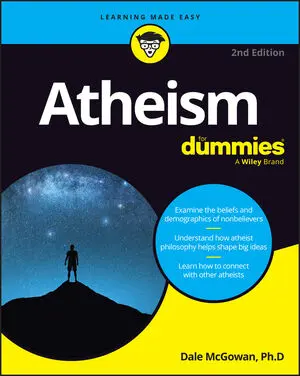Science fiction writer Isaac Asimov calls the Bible “the most potent force for atheism ever conceived” — and many atheists agree. But most people are only familiar with that carefully handpicked sampler of inspiring passages from the Bible. For each and every inspirational passage that finds its way into pulpits and needlepoint pillows, half a dozen immoral horrors stay pretty well hidden.
Most atheists are willing to agree that the Bible has some really magnificent passages. Few have found a more eloquent tribute to love than the one in Paul’s first letter to the Corinthians. That’s why it is read at many weddings.
The 23rd Psalm is unsurpassed for its poetic expression of peace and acceptance in the face of death. And the Sermon on the Mount distills the best ethical principles of Christianity into what has been rightly called the moral essence of the faith.
However, the Bible includes some very bad stuff, there’s no better way to see than by actually reading the Bible and judging for yourself.
You may not want to read the whole thing. You certainly can if you want, but for now, just start with two books: Genesis and Matthew. Religious scholar Stephen Prothero estimates that 80 percent of the religious references you’ll hear in American culture — from political speeches to figures of speech to Christmas carols — get their start in one of those two books.
Genesis will take you three hours of reading, Matthew even less. And before you reach your first bathroom break in the middle of Genesis, you’ll encounter the stories of two fathers and their children. Both fathers behave with astonishing cruelty toward their kids, and — here’s the thing — both are immediately praised and rewarded by God. Worse than that, God even ordered one of those cruel acts.
Now I don’t hold such stories against God, by the way. Hold it against the Bible and those who wrote it. And as you continue slogging through the Old Testament, that work of the human imagination has the poor Guy first instructing his people not to kill, then directly ordering them to kill neighboring peoples by the tens of thousands, including every child and infant.
“It says what?!” asks God. (See, even he knows the book mostly from needlepoint pillows.)
In Matthew you can find the story of a mortal woman impregnated by a god just as fascinating and compelling as when you read it in the Greek myth of Danaë and Perseus.
And for all the beauty and moral poetry in the rest of the Gospel, Matthew is where Jesus introduces the world to hell, speaking with some satisfaction about the eternal “wailing and gnashing of teeth” by those individuals who don’t follow his teachings.
There is a conflict between the Old Testament and the New Testament; it is commonly believed the new cancels out the old.
Not so according to Matthew 5:17-18 as God talks about the Old Law (Old Testament) not being abolished, but instead fulfilled. So all the commands to kill homosexuals, disobedient children, and nonbelievers, and to enslave and kill the people of neighboring countries — until Heaven and Earth pass away, it’s all still in force.
Okay, enough sour cherries. Perhaps you can see why reading the Bible (or the Qur’an, which fares no better, or whatever the home team’s scripture may be) is an important part of the process for many people who come to doubt, or completely reject, the religious claims around them.





